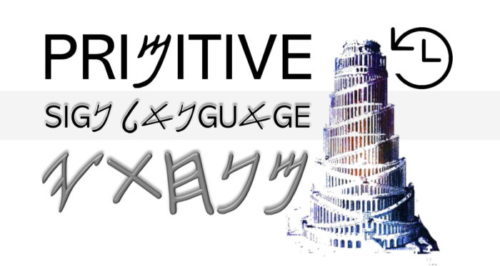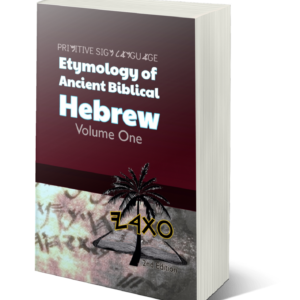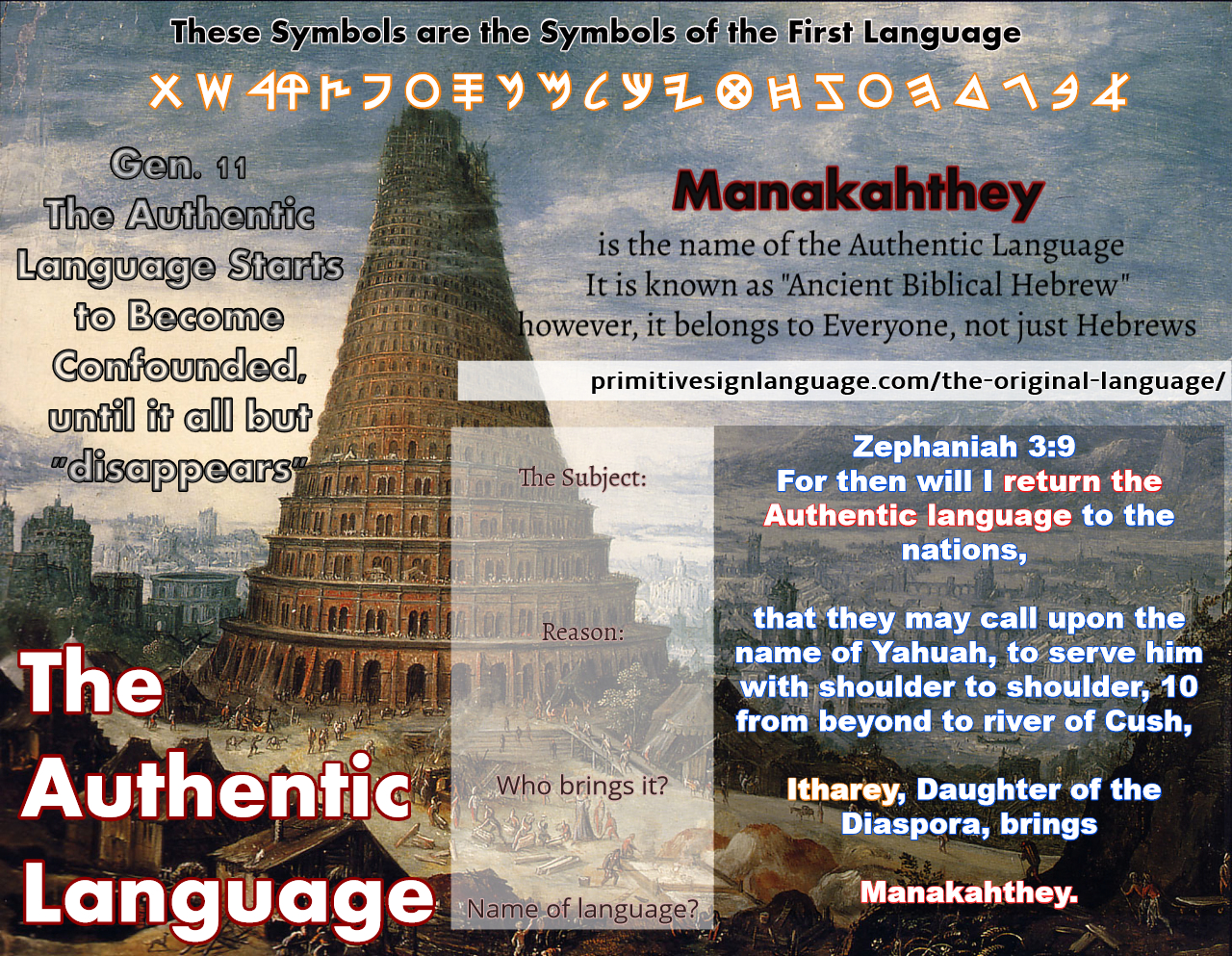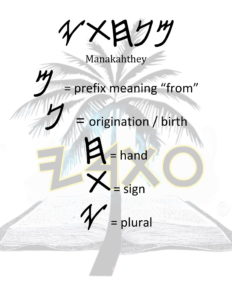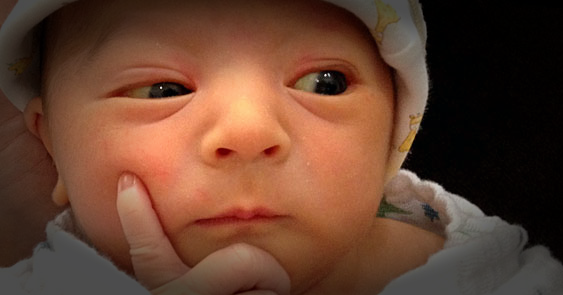
Many Hebrew words in the respected Strong Concordance and famous lexicons as Brown Drivers Briggs are dubiously defined.
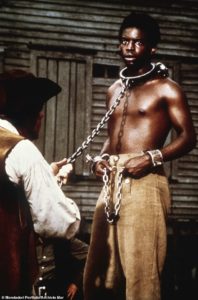 For example, when the Israelites were taking into captivity they lost their language because it was beating out of them. Eventually, Manakahthey became a “dead” language”.
For example, when the Israelites were taking into captivity they lost their language because it was beating out of them. Eventually, Manakahthey became a “dead” language”.
It took our own enemies to repackage it back to us, in order for us to get some sort of clue. A clue is all we had because they didn’t use our Manakahthey Script 𐤀𐤁𐤂𐤃𐤄𐤅𐤆𐤇𐤈𐤉𐤊𐤋𐤌𐤍𐤎𐤏𐤐𐤑𐤒𐤓𐤔𐤕.
They called it “Hebrew”, even though it is still written as IBaRey in Strong’s Concordance #5680 and yet still, the language of the Israelites was never called “Hebrew”, but Yahudeyth. Abraham’s people spoke the original language that went without a name, not Hebrew. All men spoke Manakahthey and language evolved to be named only after it was different from the first language. The evolved language of the Israelites was “Yahudeyth”, named after the tribe of Yahudah (Judah) see Strong’s 3066. The translators will translate Yahudeyth as “Hebrew” time and time again when you read the bible, so no wonder it was hard to find. I was calling Hebrew – Ibarey for 6 months before realizing this fact and I am going to revise my book and take out “Ibarey” out of it as far as it referring to the language. This is the reason I am researching and reading the original language. The power is in the hands of the translators to lie to us because most of us don’t know our own language.
Yahudeyth is not the original language and it likely looked like Modern Hebrew today. Yahudeyth declined away from Manakahthey and switched over to different letters and added vowel marks, but thankfully, the letters do coincide with Manakahthey because all they did was replace the original scripts with it. The scribes switched it over. I know this for a fact because I know the hand gestures of the Manakahthey symbols and words and they do make perfect sense. I am not promoting that we learn Yahudeyth, but Manakahthey the original language for which the scriptures were written in. This is where the secrets lay.
Maybe they knew the language was founded in sign language and that is why they choose to “revive” Hebrew (Lol, made up language a few decades ago) using Babylonian script. They even perplexingly added vowel marks which add confusion upon confusion. I wish I was done, then they added extra letters and pronounced words in odd fashions. It might be hard for Moses or Abraham to recognize Hebrew came from Manakahthey. Moses & Abraham would not even be able to read it.
My mission is to bring back the authentic language of the scriptures, keep the true scripts and not lie about the meanings of words.
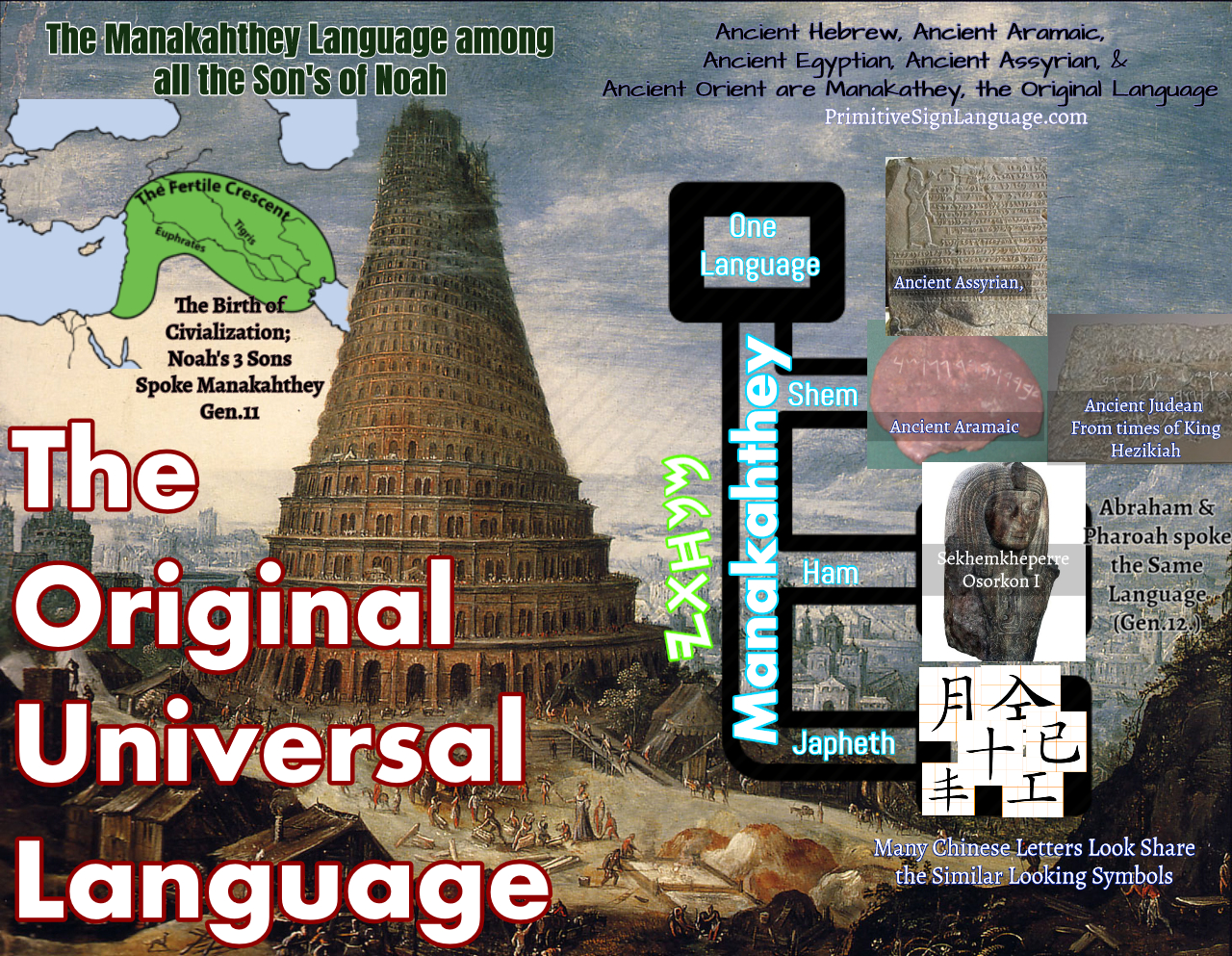
I am really trying to get my books in many people’s hands because I know for sure that the internet is going to shut down and books that we purchased before their New World Order (destruction more like it) will be the only source of information and we will have to come together and share it, but at least that will bring us closer.
- The translators were mostly successful in figuring out the general meaning of words by studying and comparing other similar languages. They tell you they did this when you read their source for the meaning of words.
- Another method, proving to be more accurate is comparing various scriptures to another. When a Manakahthey word has multiple references and verses to compare, it is easy to draw out the meaning without going to a foreign language. However, when a word is mentioned only once or twice or the use in a verse seems “odd”, they tend to walk over to a neighboring language and “borrow” their meaning. I do respect Brown Drivers Briggs for writing “dubious” when they are unsure.
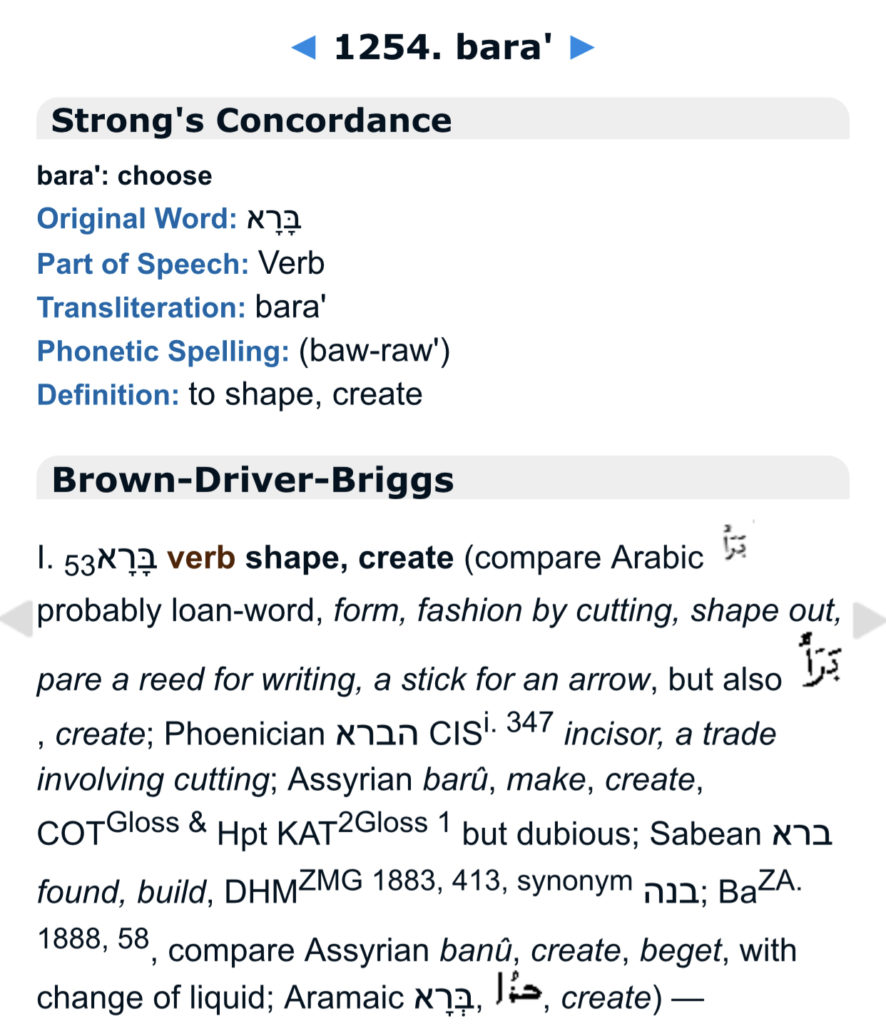
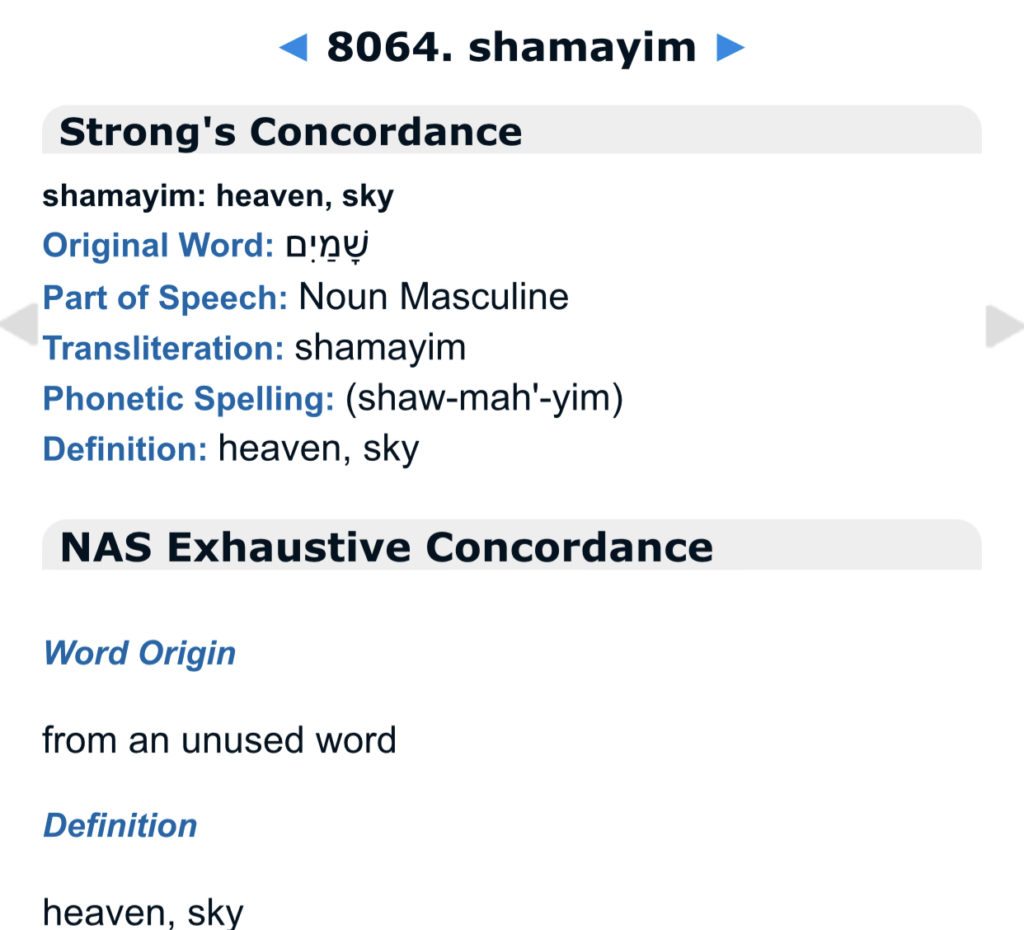
Notice the references to foreign languages for the word Shamayeim. This should be concerning to you for words that don’t have many verses to reference. 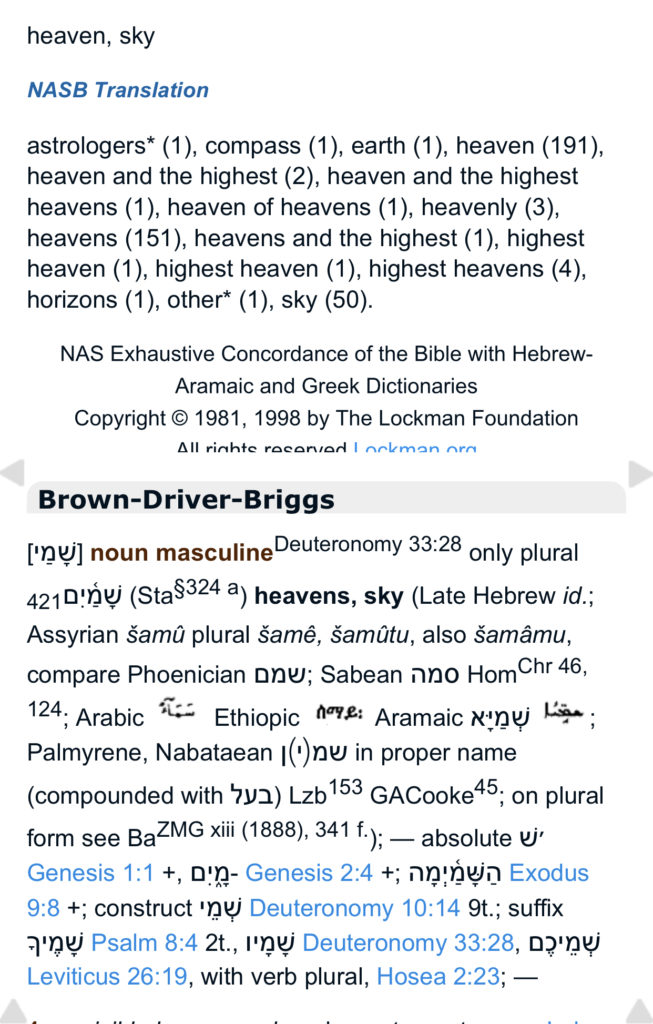
At times the translators had to give many translations a “best guess”.
They were Dubious
Does that sit well with you to know they were unsure, yet translated the bible? Well, that is why I wrote my book. You might not think it is necessary to know the etymology of Hebrew words until you realize the many Torah laws, prophesies and moral recommendations were mistranslated by no fault of anyone except they didn’t know Hebrew was founded in sign language. Now you can pick up where the translators failed. Read my book and learn how to define words by their hand gestures. You might not need to do it all the time, but sometimes you will need to do it. Also, if you are learning Paleo Hebrew then you should learn the etymology of the symbols by reading my book. This will help you to accelerate your retention of new words. It is easy to remember a sign language than foreign letters. The sign language of Manakahthey is written words in the air and at the same time depict the meaning of said word. See examples of it in the menu called “free lessons”. More words are coming. Actually, I plan to sign out all the words in the bible, but it will be posted to my other site, Itharey.com. Our ancestors were geniuses.
Here is a short list of other words that the translators were dubious about.
https://biblehub.net/searchhebrew.php?q=Dubious+
